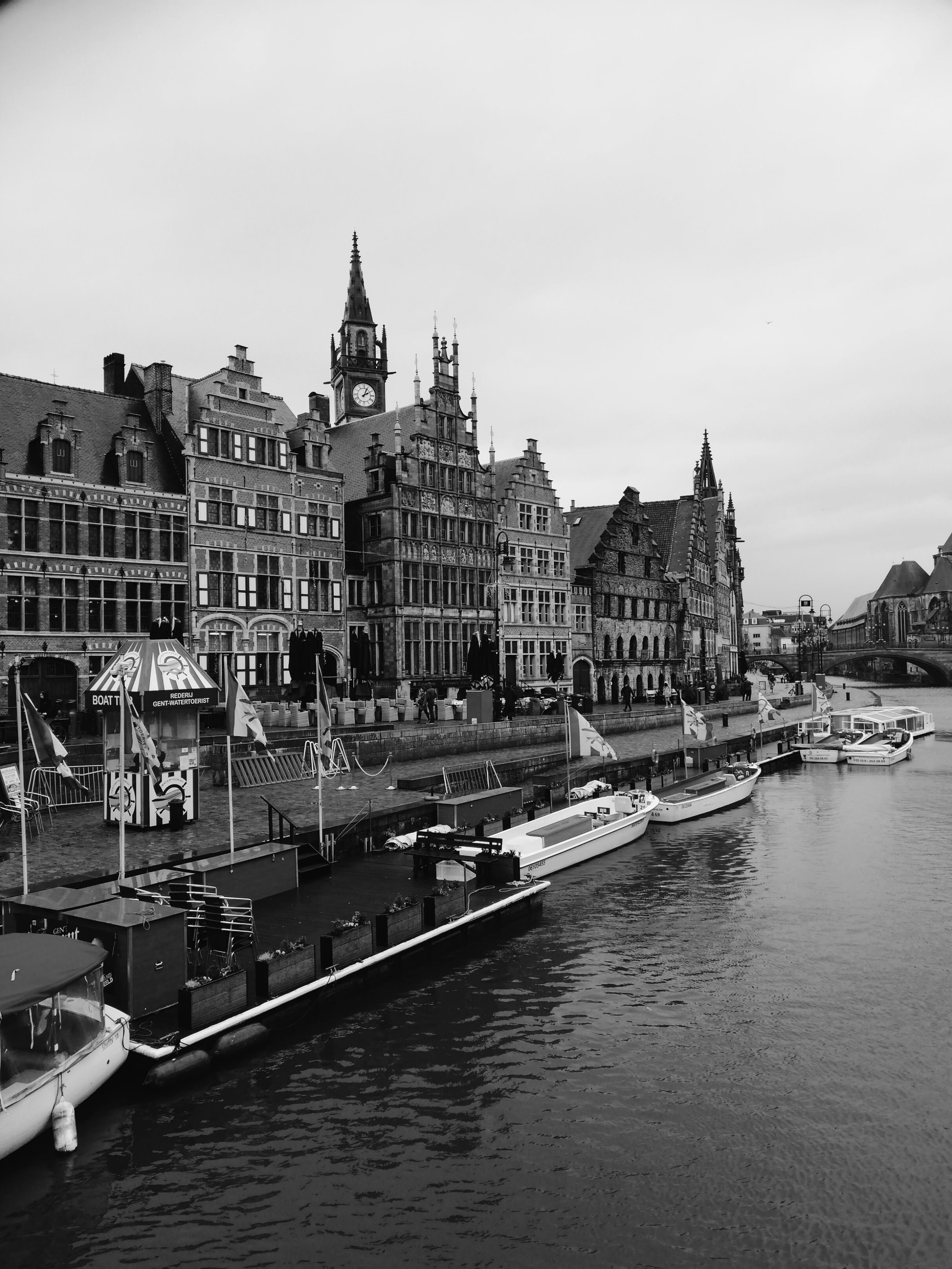Bee Watson: Ghent
What can we learn from Ghent about civic pride?
Of all the conversations I had while on the Exeter Culture trip in December, six words stuck with me: “We are proud to be Ghentian.” As a visitor, it was easy to understand why. The architecture was breathtakingly beautiful, people were friendly, independent businesses appeared to be thriving, and the Belgian beer and chocolate were all they were cracked up to be. The whole city centre was pedestrianised, which gave the streets an overwhelming sense of overall calm and made getting around a pure joy. Their state-of-the-art library, De Krook, set over six floors, welcomed thousands of visitors a day and ran more than 1,000 workshops a year. An elderly man sat playing grand piano in the middle of the building with headphones on as we were being given a tour, which totally stole my heart. To top it all, the arts centre we visited, Vooruit, housed hundreds of resident artists over the years as well as having a programme of national and international performance, music and visual art that made me want to stay for the rest of the year.
Hearing this person speak about their city with pride made me think about how I talk and hear others talk about Exeter. It made me question what responsibility we have as individuals and as a collective to talk up the city and what difference it can make anyway.
I’ve been based in Exeter for the best part of 15 years. I have the privilege of living here because I choose to but I kind of envied this person for their strong place-based connection and sense of cultural identity.
Like many people who have stayed anywhere for a length of time, I have many opinions about what the city lacks or misses out on in comparison to other places, and how things could be improved, etcetera, etcetera, etcetera… Sure enough, scratch a little beneath Ghent and you also hear the familiar stories of difficulties passing policies to enhance lives, organisations within the city with differing priorities and new projects meeting resistance, too.
What I concluded is that championing where you live is a choice. It’s not a concept I’ve ever much engaged with before but it’s something I felt inspired by the people I met to do better. Being an ambassador for where you live doesn’t mean turning a blind eye to the problems we face as a city or that we stop working to innovate solutions. It’s about consciously deciding to take responsibility for the stories we tell ourselves and each other about where we live and work.
These stories shape our experiences, perceptions and feelings about a place. When we really care about somewhere and feel connected to it, we are much more likely to look after and advocate for it and each other; this in turn fosters a culture in which people can thrive.
If this is not something you do already or can bring to mind quickly, I challenge you to this: in preparation for the next time you find yourself talking about Exeter with someone, take a moment to think about a few things you really enjoy about life in Exeter, or wherever you are based. Why do you live here over anywhere else? Where are your favourite places to visit/hang out and why? Which people do you think of as your community? What local events or activities do you look forward to in the year? What things you’d like to try out or start up?
It’s super easy to go away and fall in love with everything about a place that is different to home, and I was readying myself for this blog post to be a straight up list of all the things Exeter decision-makers could learn from Ghent. Instead, I returned with a fresh perspective on how important it is that we as individuals invest in and truly celebrate the communities and environments we find ourselves calling home.

